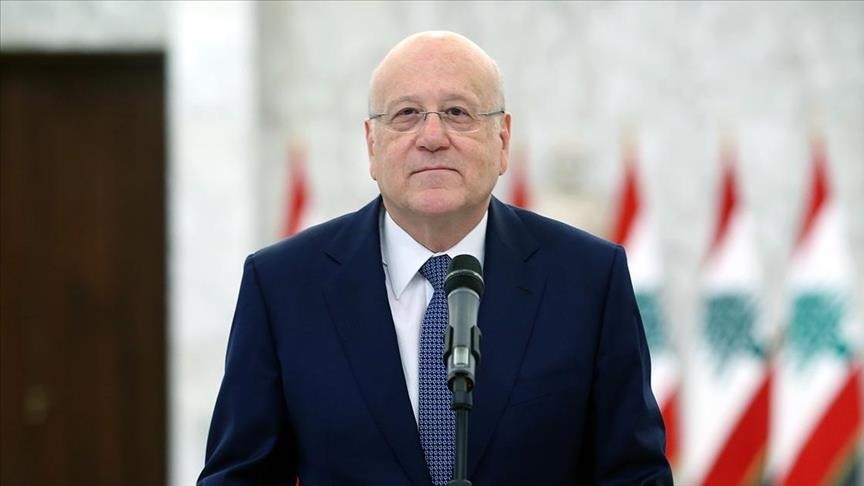Will reforms alone help new Lebanese premier win Gulf support?
Reform essential for France, UK support; different scenario to get support from Gulf

BEIRUT
Lebanese Prime Minister Najib Mikati will assume duties to form a government following international assurances of support to get him through the ongoing economic crisis.
The first assurance came from France, which has special historical relations with Lebanon.
Last week, Mikati started his government at the gates of Paris, as he met French President Emmanuel Macron at the Elysee Palace. He then headed to London where he met several officials.
The core of the message the Lebanese premier received from Paris and London is that there would be no financial aid without reforms.
The Lebanese government headed by Mikati was formed after 13 months of stumbling, following the resignation of the caretaker government headed by Hassan Diab on Aug. 10, six days after a catastrophic explosion at the Port of Beirut.
Lebanese people hope the new government will put an end to the severe economic crisis that hit the country in late 2019 and led to a financial collapse and a record rise in poverty rates, as well as a shortage of fuel, medicine and basic commodities.
-Reforms first
Political analyst Johnny Mounir said, "the entrance to all international aid is the International Monetary Fund and reforms."
Mounir pointed out to Anadolu Agency that France "focused on reforms in the electricity sector, especially the formation of an authority to regulate it."
The authority that regulates the electricity sector has the right to issue licenses to private companies that intend to produce electricity and sell it to the country’s main electricity provider, Electricité du Liban.
For more than two months, the country has been suffering a severe shortage of fuel used for power plants, due to a lack of sufficient foreign exchange to import.
"It is not possible to rely on any foreign or Gulf support, before implementing reforms," said Mounir.
For his part, political analyst Muhammad Nimr told Anadolu Agency that "it is clear that this government came as a result of contact between France and Iran."
Nimr said that "the country that was communicated with the most is France."
"France does not have sufficient support to save Lebanon, which can only be saved through the Gulf corridor, specifically Saudi Arabia, which historically had the greatest capabilities to extricate the country from its crises."
-Gulf ambiguity
Since Mikati took office, he sought the support of Arab countries and after he visited France, reports indicated an upcoming visit by Mikati to the Gulf, specifically Kuwait and Qatar.
But the prime minister's media office has not issued any comment on a trip or set a date for a visit.
Mounir pointed out that "Mikati is waiting for Saudi Arabia to make its position clear regarding the government, positively or negatively, in order to take the next step."
He said that "Mikati's visit to Kuwait, Qatar and Egypt is possible."
Mounir emphasized that "these visits will mean political support, while the financial support will be delayed pending an agreement with the International Monetary Fund."
-Saudi policy
About three weeks have passed since the formation of the Mikati government and no Saudi statement or comment has been issued as the Kingdom’s position on Lebanon does not only depend on reforms but there is a negative effect of the Hezbollah group on historical relations of the two countries.
"Saudi Arabia was clear about its positions on any government in Lebanon, and spoke about three basic things: the state's reforms, the existence of a corrupt political class, and its view that Hezbollah poses a security threat to it through the Houthis" in Yemen, said Nimr.
"There are many requirements for Lebanon to be a real country, that has its own decision and government, and if these requirements are met, Saudi Arabia will be the first to help it," he said.
On Aug. 10, the Saudi Cabinet made it clear that any assistance provided to the current or future government in Lebanon depends on Beirut carrying out serious and tangible reforms, while ensuring aid reaches beneficiaries, and avoiding mechanisms that enable the corrupt to control the country's fate.
Western financial aid to Lebanon is linked to its implementation of reforms.
As for Gulf aid, especially Saudi aid, depends on putting a limit to the authority of Hezbollah in Lebanon.
*Writing by Mahmoud Barakat








